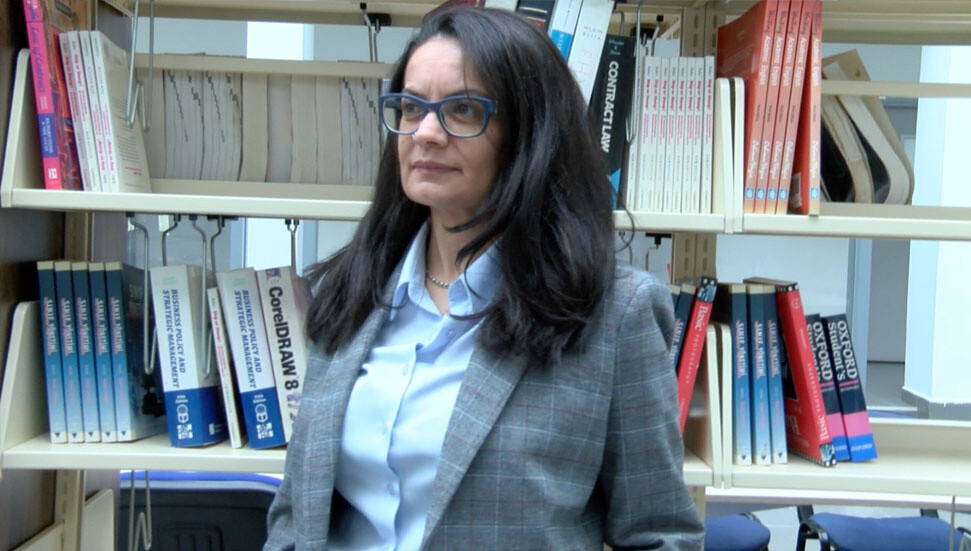Girne American University (GAU) Vice Dean of the Faculty of Humanities Assist. Assoc. Dr. Ayşe Muhtaroğlu made statements about violence against women. Muhtaroğlu emphasized in her statement that one should not remain silent against violence.
Speaking about the sociological causes of physical and psychological violence against women, Assist. Assoc. Dr. Ayşe Muhtaroğlu said, “We generally focus on physical violence. When we look at the root of physical violence, swearing, psychological and economic reasons are more prominent, but we cannot see this.
When we look at the social causes, economic crises, the inadequacy of education, as well as the family’s upbringing style, as well as the policies we carry out incorrectly, and these policies reinforce the roles we call gender and turn them into taboos. We can say that the inadequacy of our laws is one of the most important reasons.”
Speaking about the media’s interest in violence against women, Muhtaroğlu said, “The media definitely fuels violence. For example; There is a TV show called The Red Room. In this series, it was mentioned about women who were subjected to 90% harassment, rape, verbal and psychological violence. At the same time, the recovery processes are described in such TV series abroad.
In my opinion, that is what is missing in many series. For example, someone has been subjected to violence, but it must be a result of it, there must be a punishment, something must be done, one must be able to speak, not be silent, but many TV series or movies do not have this. He just hit, break, cries and shuts up. This is how the biggest problem in the series begins. We need to come to a solution while editing such series.”
Speaking about the role of the new generation in ensuring the equality of men and women, Muhtaroğlu said, “I look at the new generation with hope or I want to be hopeful. First of all, we need to break our stereotypes and taboos. I hope the next generation will come even more different. I hope that maybe he will read this social media well and make good messages and carry it forward.”
Muhtaroğlu also made a statement about the psychological state of children who see their mother exposed to violence and said, “Unfortunately, children copy something while creating their own discourses, characters and their own subconscious. So you kind of become their mirror. For example, we want our child to read a book, but we complain when the book is not read.
We say why don’t you read a book. However, children understand more to show something than to say it. Even if you think that you do not reflect the violence on the child, the children feel it from the behaviors you have done. If you can’t communicate with your parents, laugh or chat, it’s actually verbal violence. Those kids learn from what they see. But we are not aware of this.”


